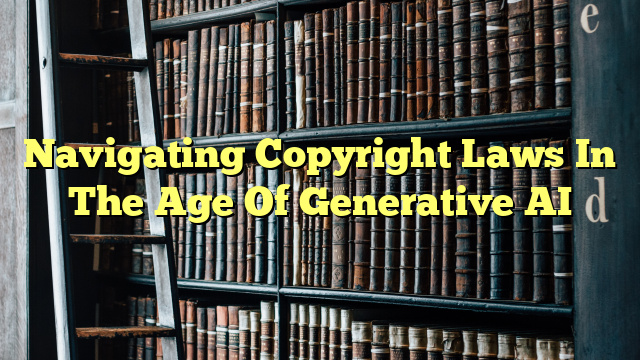- Is Artificial Intelligence Generated Works Under Copyright Law?
- Who Owns the Copyright on AI-Generated Content?
- Do AI-Generated Images Have Copyright?
- Can AI Violate Copyright?
Is Artificial Intelligence Generated Works Under Copyright Law?
The short answer is yes. In fact, a number of countries have laws that protect works created by artificial intelligence (AI). In the United States, the Copyright Act of 1976 extended copyright protection to “original works of authorship,” which can include works created by AI. According to the Copyright Office, this includes “literary works; musical works, including any accompanying words; dramatic works, including any accompanying music; pantomimes and choreographic works; pictorial, graphic, and sculptural works; motion pictures and other audiovisual works; sound recordings; and architectural works.”
Given the breadth of these categories, it’s clear that computer-generated works can fall under copyright law. For example, an AI-generated photograph, a computer-generated song, or even a computer-generated book could all be protected by copyright. It’s important to note, however, that these works must be “original” works of authorship in order to receive copyright protection.
Who Owns the Copyright on AI-Generated Content?
The general rule is that the author of a work owns the copyright. So, in the case of AI-generated works, the owner of the copyright is typically the entity that created the AI program. This can be an individual person, a company, or an institution. The copyright owner has the exclusive right to reproduce, distribute, publicly perform, and create derivative works based on the copyrighted work.
It’s important to note, however, that the ownership of the copyright on AI-generated works can be complicated. In some cases, the creator of the AI program may not be the author of the work. Instead, the AI program could be used to generate a work based on someone else’s ideas or instructions. In this case, the copyright on the work would belong to the person who provided the ideas or instructions.
Do AI-Generated Images Have Copyright?
Yes, AI-generated images can be protected by copyright. As mentioned above, any “original works of authorship” can be protected under copyright law, and this includes AI-generated images. This means that the owner of the copyright has the exclusive right to reproduce, distribute, and create derivative works based on the image.
It’s important to note, however, that the copyright on an AI-generated image does not necessarily extend to the underlying AI code that was used to generate the image. This means that the owner of the copyright on the image cannot prevent others from using the same AI code to generate a similar image.
Can AI Violate Copyright?
Yes, AI can potentially violate copyright. As mentioned above, the owner of the copyright has the exclusive right to reproduce, distribute, and create derivative works based on the copyrighted work. If an AI system is used to reproduce, distribute, or create a derivative work of a copyrighted work without permission, then the AI system could be in violation of copyright law.
It’s also important to note that AI systems can be used to generate works that are strikingly similar to existing works, which could also potentially violate copyright law. In these cases, the owner of the copyright may be able to bring a claim of copyright infringement against the creator of the AI system.
In conclusion,


Exploring AI’s copyright challenges.